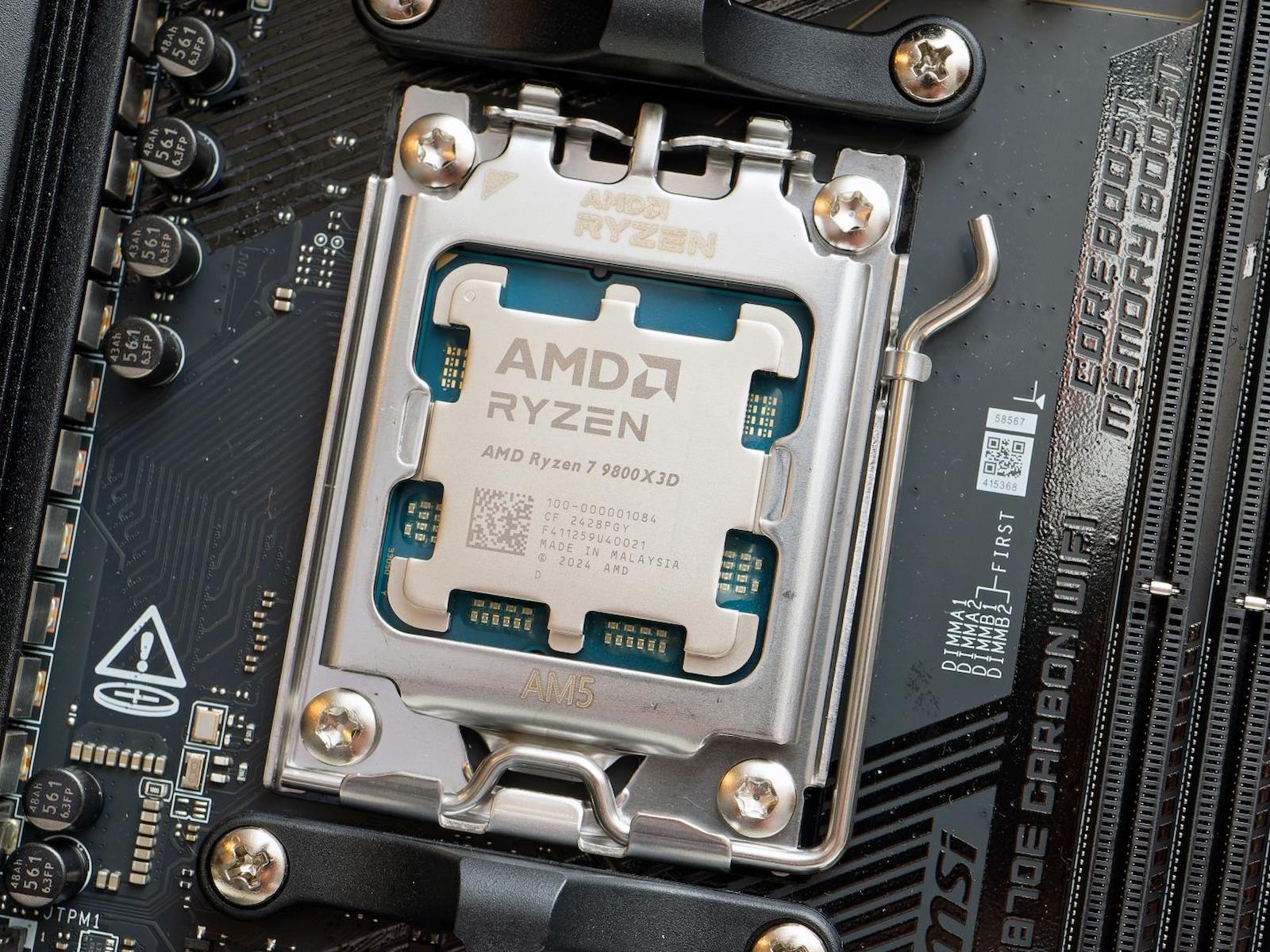It’s been a big week or so in the video game realm between the arrival of the Nintendo Switch 2 (our review is now live) and Summer Game Fest. During the Xbox Games Showcase on Sunday, Microsoft announced handheld gaming PCs that will have deep Xbox integration as well as support for storefronts such as Battle.net. Steam, GOG and Ubisoft Connect. If Microsoft and its partner ASUS stick the landing, the Xbox Ally systems could be a strong option for powering through your backlog of games, big and small. As it happens, you might be about to add more to your wishlist thanks to our latest indie games roundup.
The latest Steam Next Fest also started this week. Part of the fun of the event, which runs until June 16, is diving into demos for games you’d never heard of until now, so go forth and play some! You never know if you might be one of the first people to play the next Balatro, for instance. A quick word of advice: if you’d prefer to avoid titles with generative AI, remember that Valve requires developers that use such material in their games or marketing to disclose that on their Steam store page.
New releases
The Alters is the latest project from Frostpunk and This War is Mine studio 11 Bit Studios, which self-published this game. As the sole survivor of a space expedition, Jan Dolski has to keep a large mobile base moving across the surface of a planet to avoid the deadly radiation of the sun. To help him solve problems along the way, Jan must create and rely on clones of himself. These alternate versions (or “alters”) are based on divergences from pivotal life choices Jan made in his past. They each have their own specialist roles, skill sets and personalities, with needs that have to be fulfilled.
The Alters has an interesting premise. Once you factor in elements like traditional survival gameplay and base building, there should be plenty of variety here. Reviews have been positive for this one. I’m interested in trying it out, though it seems like the kind of thing that may prompt one to reflect on their own life choices. The Alters is out now on Steam, PS5 and Xbox Series X/S. It’s on Game Pass Ultimate and PC Game Pass.
Dune: Awakening is another major indie game that arrived on Steam this week (well, June 5 for those who bought pricier editions) following a delay. It will hit consoles at a later date. The open-world survival MMO from developer Funcom takes inspiration from Frank Herbert’s novels and Denis Villeneuve’s films. It still takes place on Arrakis but is set in an alternate timeline.
You’ll want to be extra careful when it comes to sandworms. You’ll keep most of your gear if you die by the hands of other players or other computer-controlled enemies, though you’ll drop some resources that you can pick up again if you perish in PvP combat. If a sandworm devours you, though, you’ll lose absolutely everything you’re carrying.
Oh dear, where to start with MindsEye? It is fair to say this is a video game that became available to buy this week on Steam, PS5 and Xbox Series X/S. It is also fair to say that the debut of this action-adventure title from former GTA producer Leslie Benzies’ studio Build A Rocket Boy has been less than smooth.
It was already pretty ominous that two executives left Build a Rocket Boy just days before the arrival of MindsEye. After the game’s release, Sony reportedly issued refunds to some players as clips showing glitches, bugs, performance issues and clunky gameplay spread. There isn’t even an in-game world map.
One creator who played the game kept laughing throughout their sponsored stream (the developer is also said to have pulled the plug on another sponsored stream just as it was about to start). That’s pretty ironic, considering Build a Rocket Boy co-CEO Mark Gerhard said there was “a concerted effort” against MindsEye and claimed “that there are bot farms posting negative comments and dislikes.”
The studio claimed this week it was “working around the clock” to improve MindsEye. Perhaps Build A Rocket Boy will surprise everyone and turn things around in a similar fashion to Cyberpunk 2077 and No Man’s Sky. That seems like a tall order, to say the least.
Indie games aren’t all survival and action, of course. They can also be about things like arranging photos in chronological order to discover a family story.
Such is the case with Instants from developer Endflame, which debuted on Steam during last Saturday’s Wholesome Direct showcase. It’s a charming-looking puzzle game in which you can decorate your photo album and, if you need it, get some help from a furry friend.
Upcoming
I’ve been itching to get my hands on Baby Steps for ages, so after we got a September 8 release date for the game on Steam and PS5, I was very happy that a Steam demo arrived last weekend. This is a walking simulator in the truest sense of the term from Bennett Foddy (QWOP, Getting Over It), Gabe Cuzzillo, Maxi Boch (both of whom worked with Foddy on the enjoyable Ape Out) and publisher Devolver Digital. You use controller triggers or mouse buttons to lift main character Nate’s feet one at a time and place them on the ground after using directional buttons or a thumbstick to position them.
Nate, “an unemployed failson” who seems very unfamiliar with the skill of walking, will fall over and over and over again as you hike up mountains. Sometimes he’ll fall down a muddy ravine, sending him tumbling down the side of a peak.
You might want to quit or uninstall the demo after an unfortunate tumble. I understand. I did too. But the early evidence suggests Baby Steps is shaping up to be a uniquely hilarious, frustrating and hopefully rewarding experience. And so we march on.
One of the more compelling reveals for me at the Xbox Games Showcase was a sequel to Planet of Lana, which I enjoyed very much. The follow-up to that story-driven puzzle platformer is Planet of Lana II: Children of the Leaf.
Developer Wishfully and Thunderful Publishing are bringing this installment, which looks just as beautiful as the first game, to Steam, Xbox and PlayStation in 2026. It’ll be available on Game Pass on day one. Looking forward to it.
I’ve had Gecko Gods from developer Inresin and publisher Super Rare Originals on my radar for a few years now. As a little gecko trying to save their friend, you’ll be able to climb on anything while exploring an island.
After some delays, this puzzle platformer is set to arrive on Steam, Switch and PlayStation this fall. A demo dropped as part of Steam Next Fest too.
During the various showcases over the last week or so, we saw not one, but two farming/life sims that are squarely in the horror genre. I am excited for them both. First up is Fractured Blooms from Serenity Forge (Doki Doki Literature Club Plus).
Your character, Angie, is stuck in a time loop and you’ll have to manage her food and stamina. You’ll tend to her garden and prepare meals before completing evening chores in your home, though you may not be the only entity that resides there.
As if I weren’t looking forward to this one enough already, Serenity Forge says the seminal TV show Lost was one of its inspirations for Fractured Blooms. There’s no release window as yet, but you can wishlist it on Steam if you’re interested.
The other horror-inflected farming sim that caught my eye this week is Grave Seasons, from Perfect Garbage and publisher Blumhouse Games. Sure, you’ll harvest crops, go fishing and get to know your neighbors. You might also break and enter into their homes.
While the mountain town of Ashenridge might seem idyllic on the surface, beware: there’s a supernatural serial killer on the prowl. Grave Seasons is coming to PC and consoles in 2026.
One Steam Next Fest demo I’ll certainly be checking out this weekend is for a game called Dispatch, which was announced at The Game Awards in December. This comedic narrative game is about a hero (Aaron Paul) who has run into difficult times after losing his mech suit. He starts working as a superhero dispatcher. You’ll “manage a dysfunctional team of misfit heroes and strategize who to send to emergencies around the city, all while balancing office politics, personal relationships and your own quest to become a hero.”
Dispatch has a stellar cast that also includes Laura Bailey, Matthew Mercer and Academy Award nominee Jeffrey Wright. Given that Dispatch is being made by former Telltale developers at AdHoc Studio, it’s maybe not too much of a surprise that dialogue choices are a key part of the gameplay, which has some strategic elements as well. Dispatch is coming to PC and consoles later this year.
This article originally appeared on Engadget at https://www.engadget.com/gaming/clones-sandworms-scrapbooking-and-other-new-indie-games-worth-checking-out-110031834.html?src=rss


